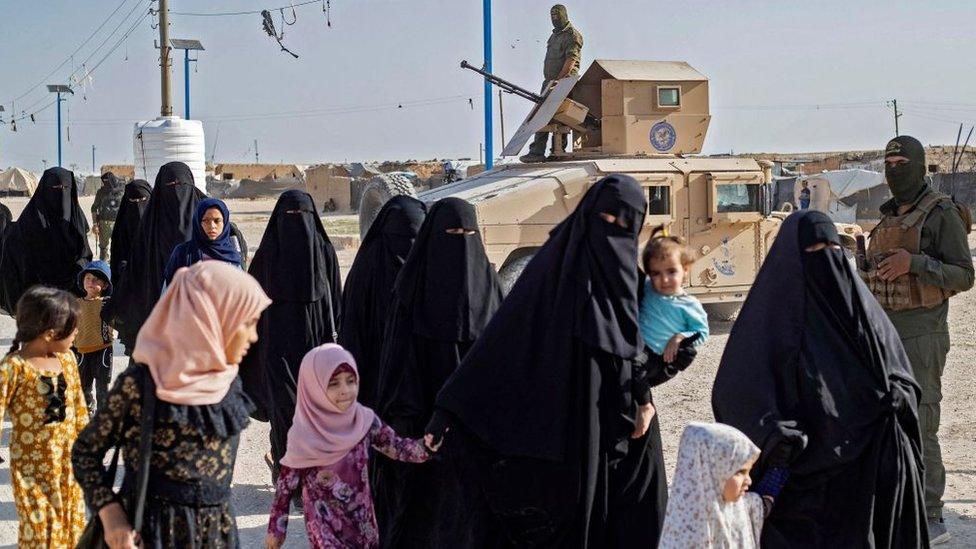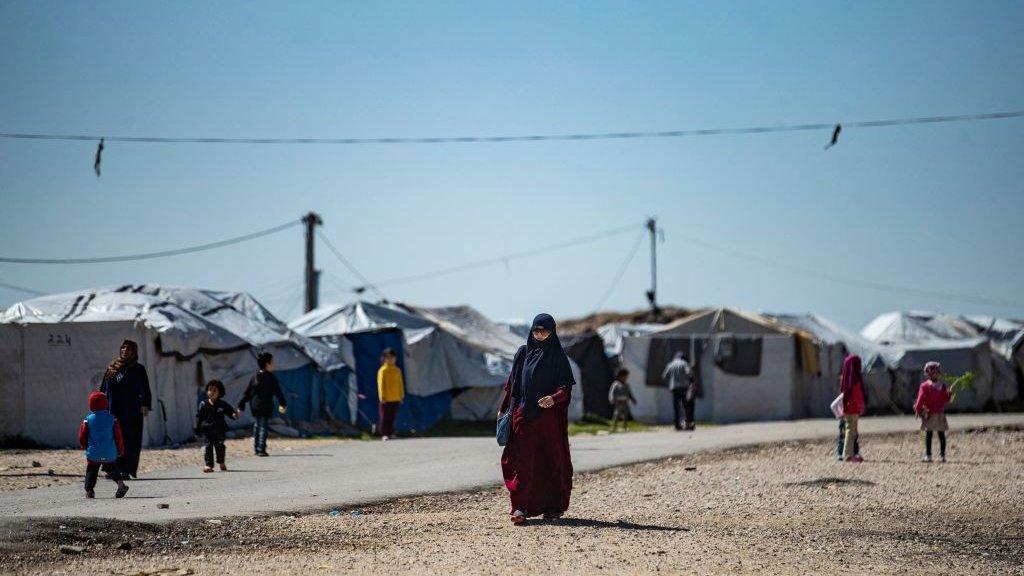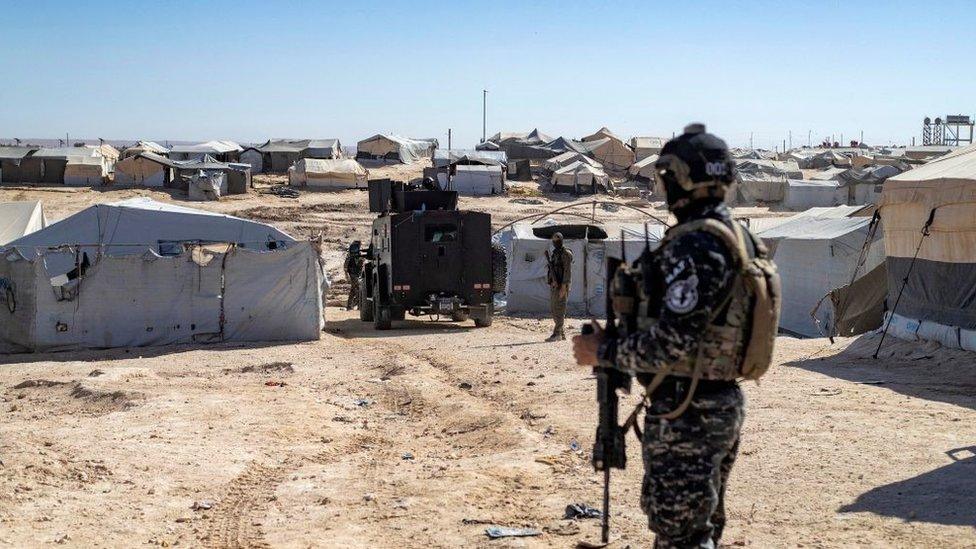Canada repatriating women and children from Syria camps
- Published

More than half of the roughly 42,000 foreign nationals held in Islamic State camps across the country are children, according to non-governmental organisation Human Rights Watch
Canada is repatriating four women and 10 children who have been held at least three years in Islamic State camps in northeastern Syria.
The federal government agreed in January to bring back a group of women and children, but pushed back on repatriating four imprisoned men.
Canada said it is taking steps to return the group due to "deteriorating conditions" in the camps.
It shared few other details about the repatriation.
Lawyer Lawrence Greenspon, who is representing the families, said on Wednesday the women and children were en route to Canada.
"I've talked to their various family members here in Canada and they are absolutely delighted that some three-and-a-half years after we started this process of trying to bring the women and children home, their loved ones are on their way," Mr Greenspon said.
There are no details about when or where the group will land.
It is unclear whether one woman, from the Canadian province of Quebec, and her six children are among the group being repatriated, though Mr Greenspon told the BBC that his " information is that she is not on the flight".
Canada offered to repatriate her children without her, as officials are still conducting a security and risk assessment for the mother, said Mr Greenspon, who represents the family.
He said Canada's department of foreign affairs, Global Affairs, told the mother last week that she could either send her children home without her or keep them in the camp with her.
"Her choice was that she wants the children to be repatriated and her to be with them at the same time," he said.
Global Affairs said in a statement on Thursday that "as long as conditions allow" it will continue repatriation efforts.
Asked by reporters on Wednesday whether Canada was breaking government policy by asking a mother to send her children back to Canada without her, Prime Minister Justin Trudeau said Canada was "engaged with all of our responsibilities".
"The situation in north-eastern Syria is incredibly volatile," he said. "Canada is watching very, very closely."
He declined to comment any further.
The repatriation could be the biggest so far for Canada after the so-called Islamic State caliphate was destroyed in 2019.
Last October, the RCMP, Canada's federal police force, arrested a 27-year-old Canadian woman returning from Syria and charged her with terrorism-related offences. Another woman, who returned to Canada after marrying an Islamic State fighter, was also arrested and released on bail while officials seek a peace bond in her case.
It is unclear if any of the women being returned this week may face charges.
In its statement, Global Affairs noted it was a criminal offence to leave the country to support a terror group abroad adding: "Where there is sufficient evidence, law enforcement and public safety agencies will independently take the necessary steps to keep our communities safe."
A federal court has also ordered the Canadian government to repatriate four men who have not been formally charged with crimes but are imprisoned in camps in Syria. British-Canadian dual national, Jack Letts, whose British citizenship was revoked, is one of the four.
Canada has appealed the court decision to repatriate the men, arguing it had no obligation to bring back citizens from Syria because it had closed its embassy there in 2012.
Speaking to the BBC's Quentin Sommerville, Jack Letts said he had been an "enemy of Britain"
Human rights campaigners have pushed the government to repatriate its citizens.
Over the past four years, only a handful of women and children have been brought back to Canada.
More than 42,000 foreign nationals, most of whom are children, are being held in dangerous conditions in Islamic State camps across Syria, according to non-governmental organisation Human Rights Watch.
- Published10 February 2023

- Published21 January 2023
